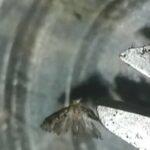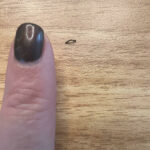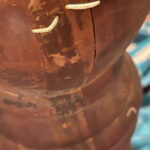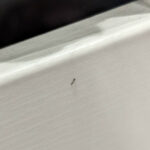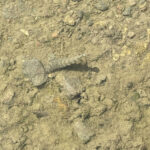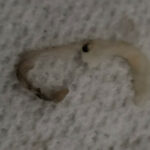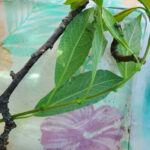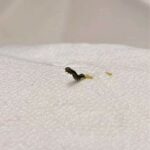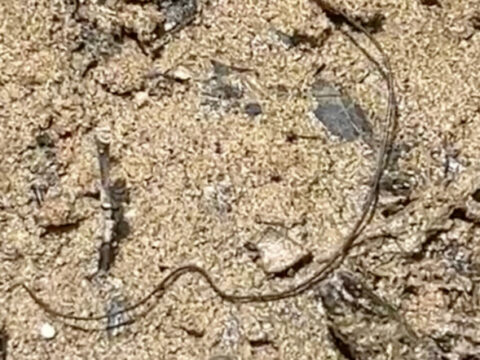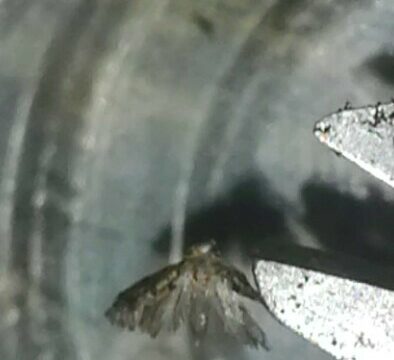
“I found these small, white worms in my horse’s water bucket in the barn”, writes Jennifer about the organisms pictured below. “I have seen them hanging from a thin thread they weave in his stall before. I am trying to identify them to make sure they aren’t toxic to him if he did ingest them. Thank you in advance.” First things first, we have to make clear that, given Jennifer’s concern for her horse’s health, any suggestions we make as to the identity of these worms should only be considered in light of these organisms being deemed non-threatening to the horse by a veterinarian. Since we are not medical professionals, we are neither qualified nor legally able to identify parasites or other organisms that directly impact the health of humans or pets, as doing so is tantamount to diagnosing their medical issue. So, we recommend that Jennifer asks a vet to check her horse and inspect the worms to see if they are a threat.
Now, provided that the vet says the worms are not a threat and that Jennifer’s horse is fine, we do have some suggestions as to what these could be, based on the photo. A white worm-like creature with a black head describes a lot of larvae (a larva being the immature form of an adult insect), and that is what we think these are. The problem with that is that it is hard to narrow down the list of larvae that fit this description to just one species without having some very specific context, like what they might be eating, or what other insects were near the time of discovery of the larvae. Jennifer has told us that these were found in a water bucket but were previously found hanging from some thread that they wove, which is helpful context. We do not think that water is their natural habitat, especially if they were on land before without drying out. Besides, no larvae that we can think of (that look like this) are aquatic.
At first we thought these might be maggots, but fly larvae do not spin their own webs. It is possible these guys were not actually spinning their own webs, but might have gotten caught in a spider’s web, but then they are not likely to have escaped. Alternatively, these could be moth caterpillars of some kind: casemaking clothes moth larvae come to mind. They spin their own webs. In fact, they spin silken tubes in which they hide while they munch on their food and try to avoid predators. It is odd that so many non-aquatic larvae would be found in a water bucket, but maybe they fell in. Maybe a batch of caterpillar eggs hatched right above the bucket, depositing them in the bucket. We cannot know for certain.
In any case, we cannot say whether or not these worms will be toxic to Jennifer’s horse: only a medical professional will be able to tell her that. We also do not want any of our suggestions for the worms’ identity to be taken as confirmation that these are not a health threat to her horse, as our identifications are not only are they merely educated guesses, but they are also not informed by an opinion from a medical professional. We hope that this helps, and we wish Jennifer and her horse the very best.
All About Worms is always free, always reader-supported. Your tips via CashApp, Venmo, or Paypal are appreciated! Receipts will come from ISIPP Publishing.
You might also find these guys interesting!





